You are here
New Releases
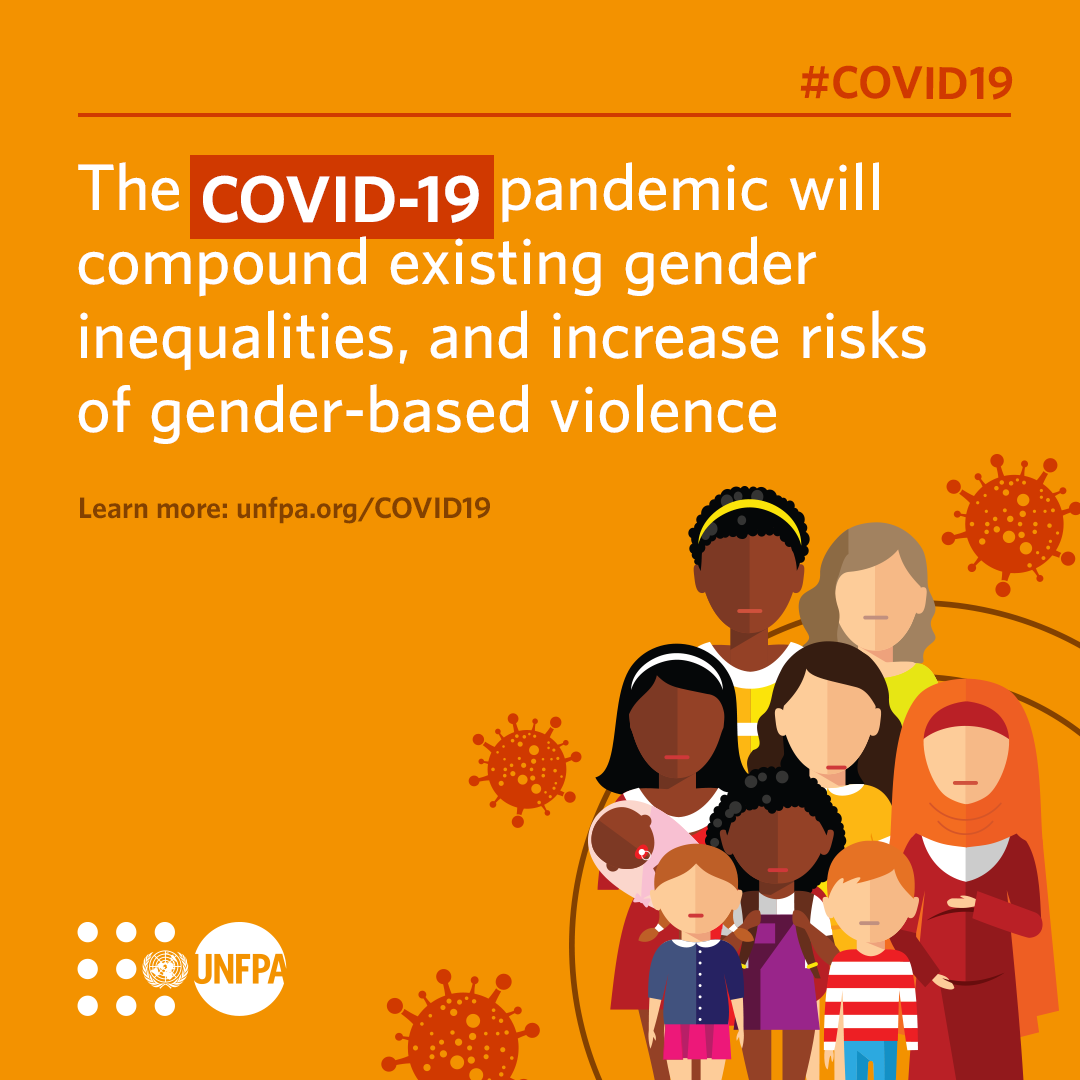
Coronavirus Disease (COVID-19) Preparedness and Response: Gender Equality and Addressing Gender-based Violence (GBV)
The pandemic will compound existing gender inequalities, and increase risks of gender-based violence. The protection and promotion of the rights of women and girls should be prioritized.
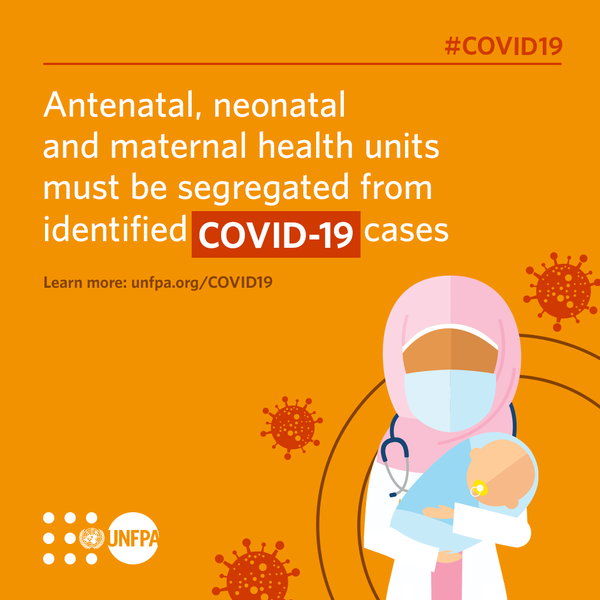
Coronavirus Disease (COVID-19) Preparedness and Response: Sexual and Reproductive Health and Rights, Maternal and Newborn Health & COVID-19
There is no current evidence of adverse effects on pregnant women from COVID-19. The physical and immune system changes that occur during and after pregnancy should however be taken into account. It is critical that all women have access to safe birth, the continuum of antenatal and postnatal care, including screening tests according to national guidelines and standards, especially in epicenters of the pandemic, where access to services for pregnant women, women in labour and delivery, and lactating women is negatively impacted. • Keep the health system functioning: Maintain sexual and reproductive health and rights (SRHR) information and services, protect health workers and limit spread of COVID-19.
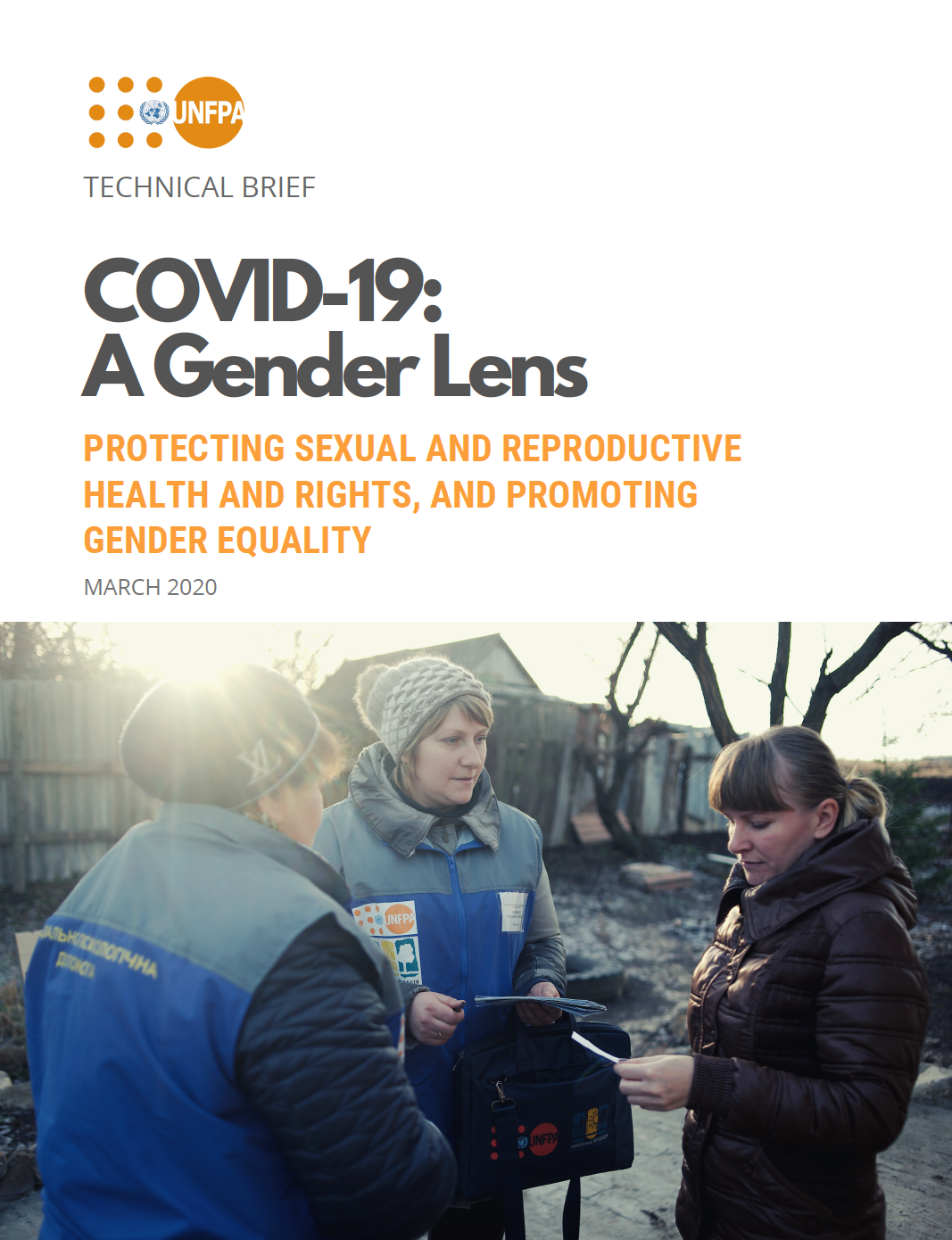
COVID-19: A Gender Lens
Disease outbreaks affect women and men differently, and pandemics make existing inequalities for women and girls and discrimination of other marginalized groups such as persons with disabilities and those in extreme poverty, worse. This needs to be considered, given the different impacts surrounding detection and access to treatment for women and men.
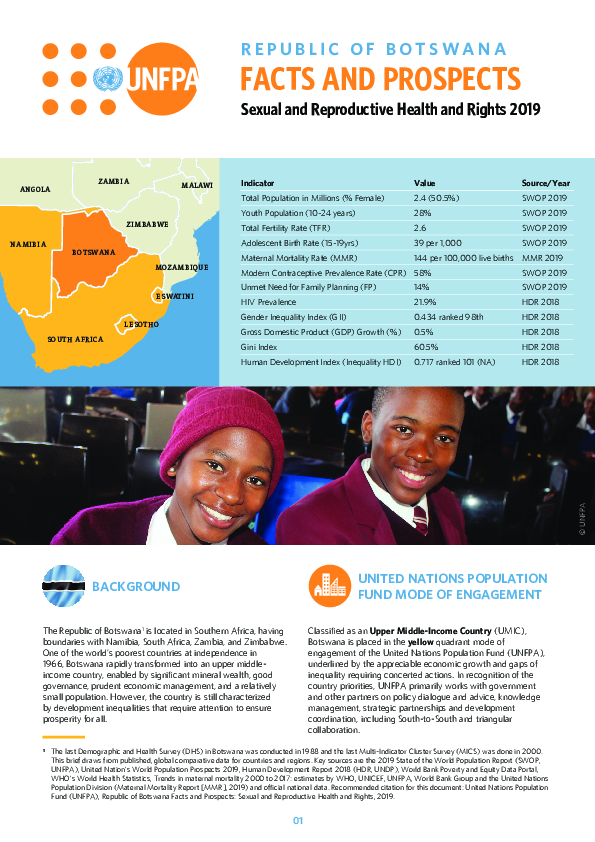
Republic of Botswana: Facts and Prospects
One of the world’s poorest countries at independence in 1966, Botswana rapidly transformed into an upper middle-income country, enabled by significant mineral wealth, good governance, prudent economic management, and a relatively small population. However, the country is still characterized by development inequalities that require attention to ensure prosperity for all.
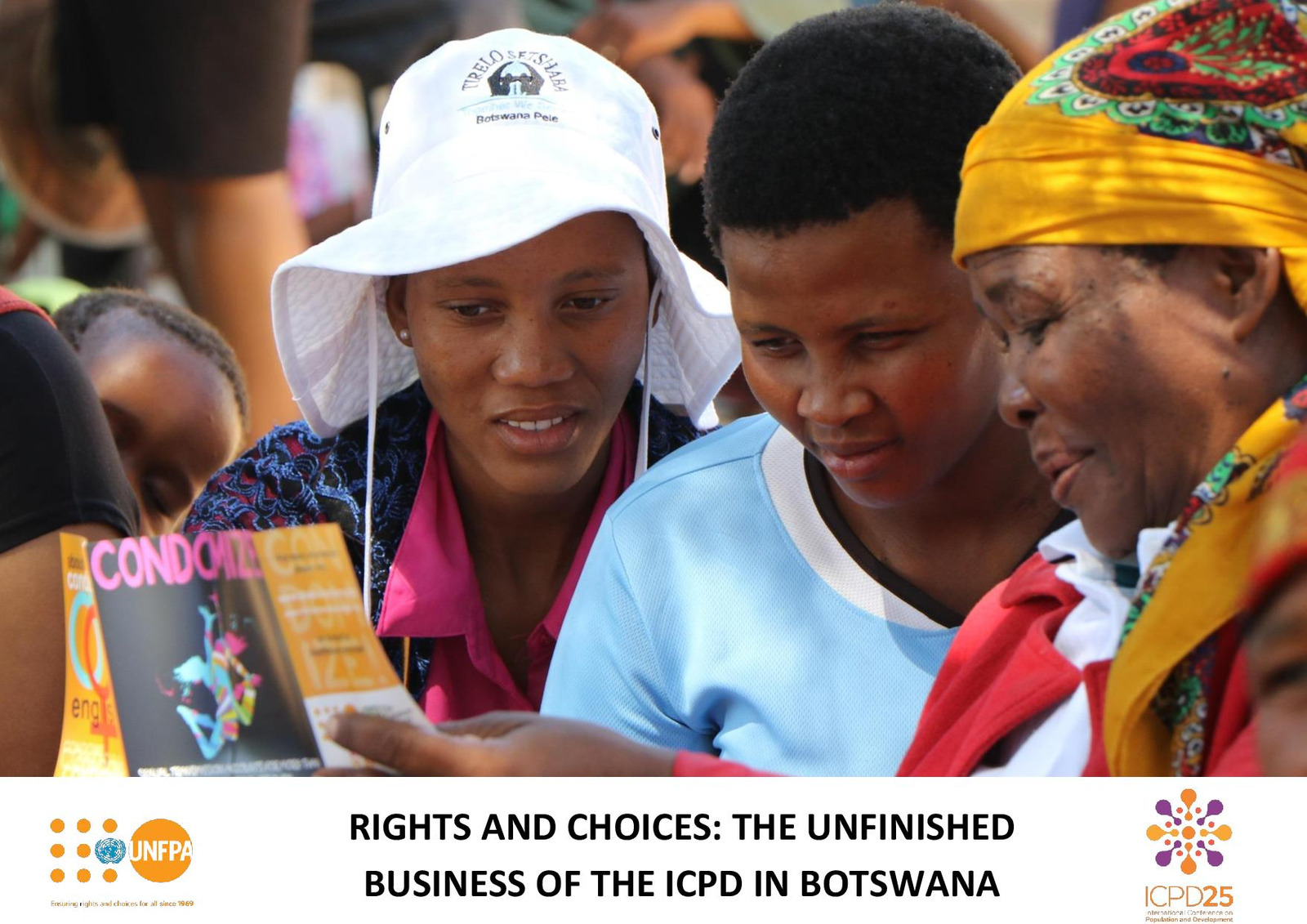
Rights and Choices: The Unfinished Business of the ICPD in Botswana
Despite the progress made in Botswana towards sexual and reproductive rights for all, much still remains to be done to ensure that the ICPD promise is realised for women and girls, regardless of their location or who they are. The ICPD Promise booklet is an assessment of Botswana on the ICPD promise reflected through human interest stories and some ICPD indicators.
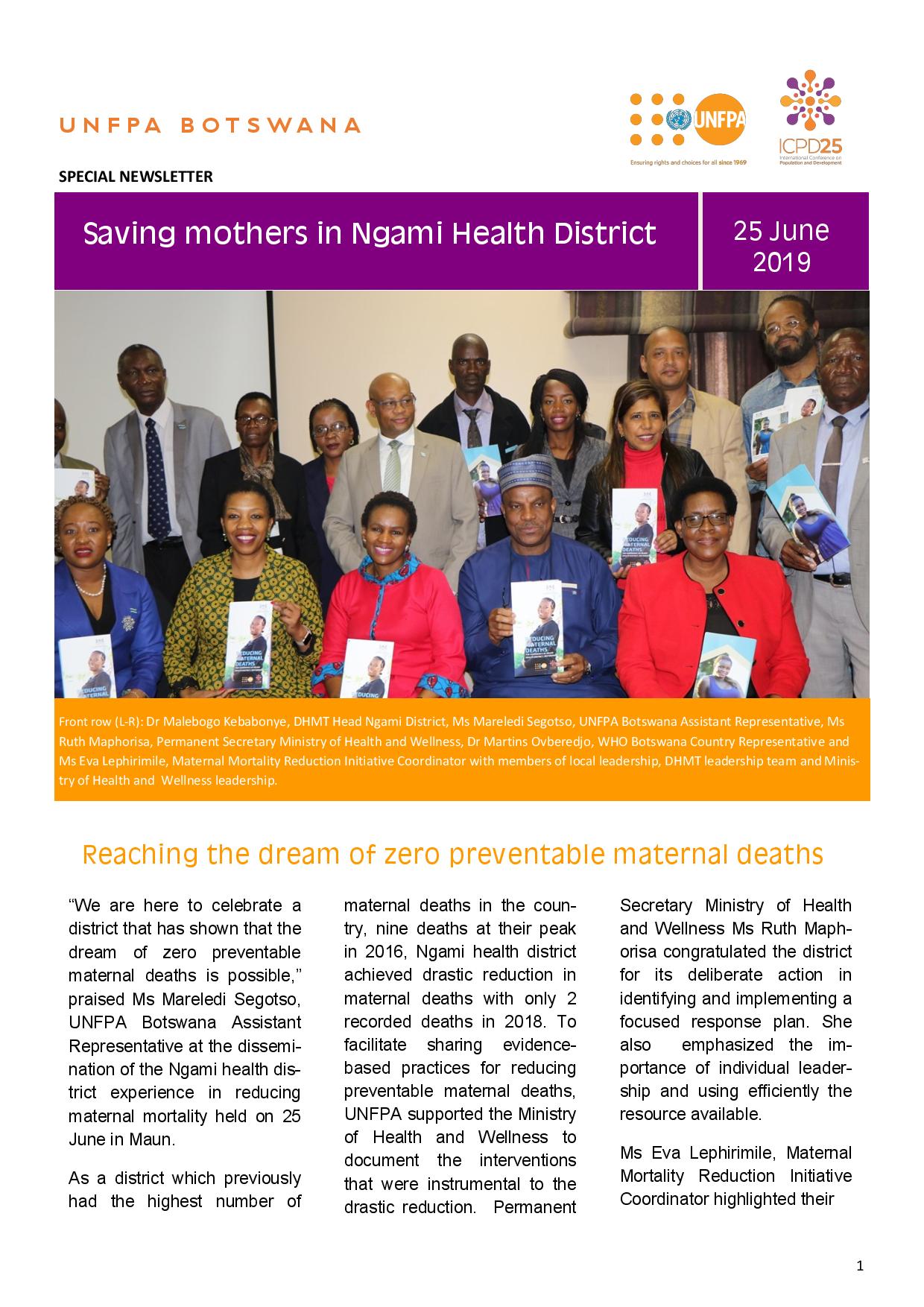
Special Newsletter: Saving mothers in Ngami Health District
Ngami Health District has been one of the districts in Botswana that was struggling with a high burden of maternal deaths over the years with the district reporting 9 maternal deaths out of the 85 maternal deaths reported by the country in 2016, making it the third highest after the 2 national referral hospitals. Following 2 national summits that brought together the districts contributing the highest maternal mortality deaths, Ngami districts developed a response plan aimed at instituting and implementing remedial measures for the identified causes. This resulted in a significant decline as the District reported three maternal deaths in 2017 and 2 in 2018.
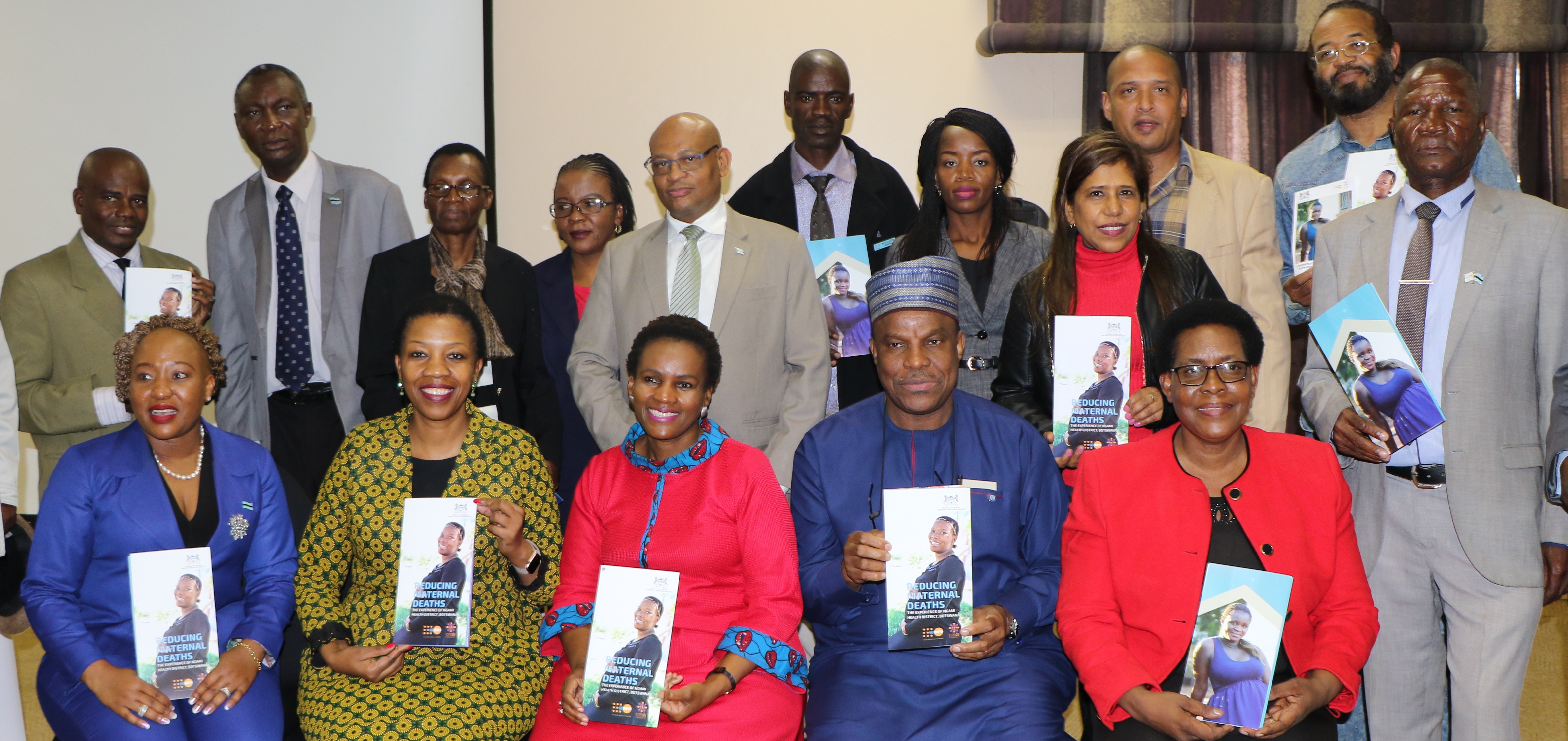
The Eleven Promising Practices for Reducing Maternal Deaths: Experiences from Ngami Health District
Ngami Health District has been one of the districts in Botswana that was struggling with a high burden of maternal deaths over the years with the district reporting 9 maternal deaths out of the 85 maternal deaths reported by the country in 2016, making it the third highest after the 2 national referral hospitals. Following 2 national summits that brought together the districts contributing the highest maternal mortality deaths, Ngami districts developed a response plan aimed at instituting and implementing remedial measures for the identified causes. This resulted in a significant decline as the District reported three maternal deaths in 2017 and 2 in 2018.
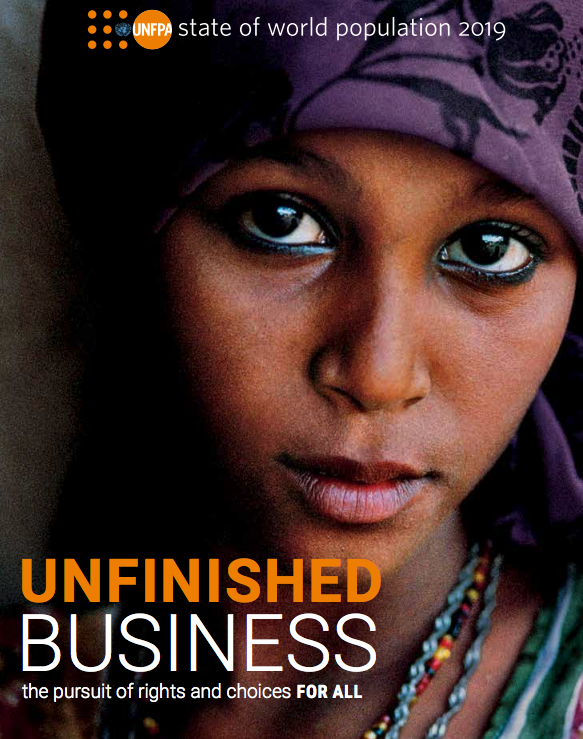
State of World Population 2019
Fifty years ago, it was hard for women to obtain contraception and relatively easy to die giving birth. Many women were unable to decide whom and when to marry, and when or whether to have children.
A worldwide movement to give women real choices in life culminated in the 1994 International Conference on Population and Development (ICPD), where a consensus was reached about the links between women’s empowerment, sexual and reproductive health, and rights and sustainable development.
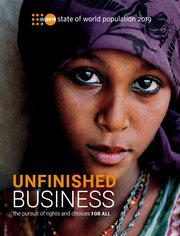
Unfinished Business: the pursuit of rights and choices for all
This year’s State of the World Population (SWOP) report comes at the 50th anniversary of the creation of UNFPA, the UN agency for sexual and reproductive health, and the 25th anniversary of the International Conference on Population and Development (ICPD). The report analyzes the progress the world has made regarding the promises of the ICPD including putting individuals in charge of their own reproductive decisions and empowering women and girls as a precondition for development. The report also identifies areas of improvement and tells stories of women who lived through the transformative decades since the promises of the ICDP were first made.
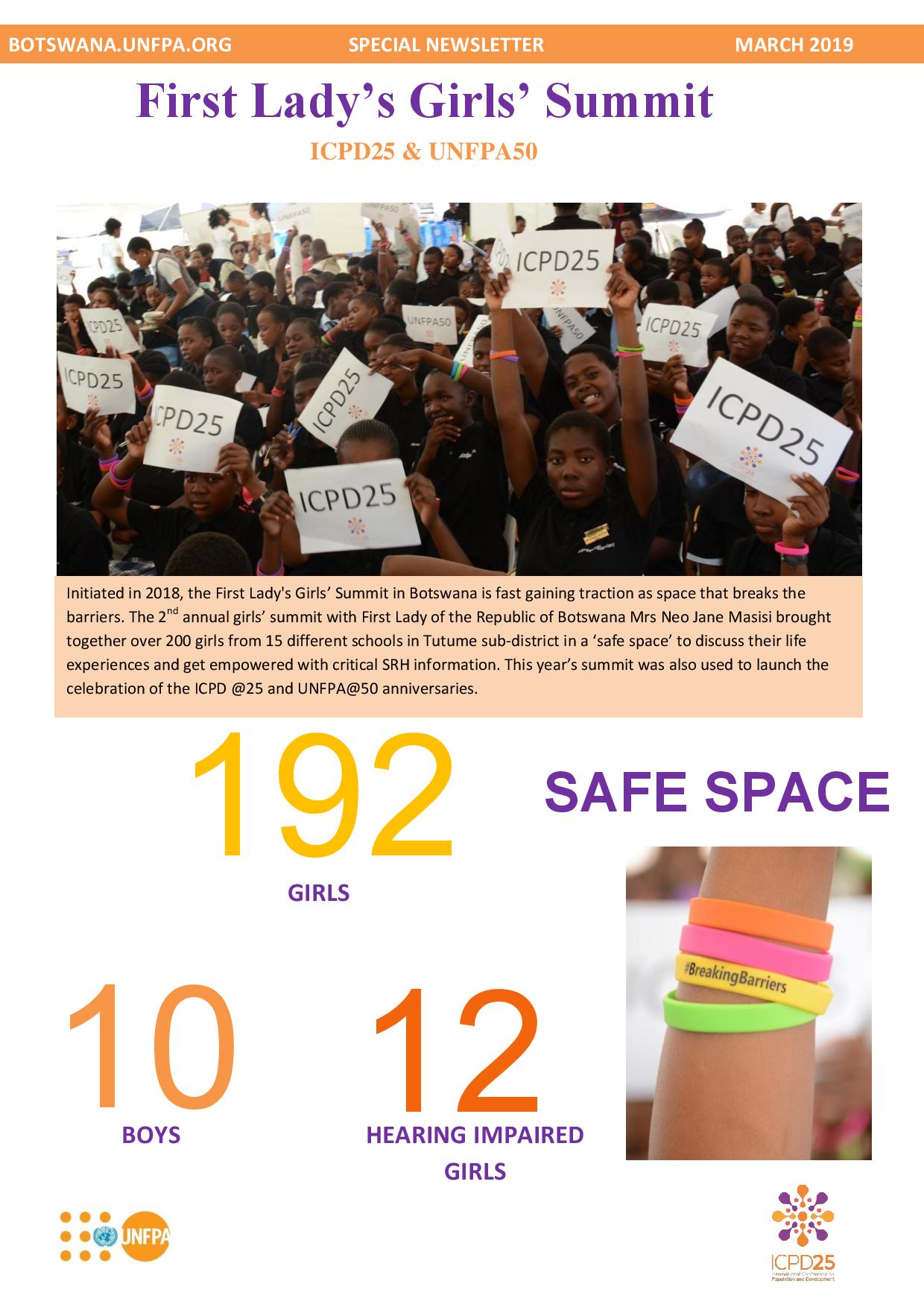
Special Newsletter: First Lady's Girls' Summit - Double ICPD25 & UNFPA50 Launch
Initiated in 2018, the First Lady's Girls’ Summit in Botswana is fast gaining traction as space that breaks the barriers. The 2nd annual girls’ summit with First Lady of the Republic of Botswana Mrs Neo Jane Masisi brought together over 200 girls from 15 different schools in Tutume sub-district in a ‘safe space’ to discuss their life experiences and get empowered with critical SRH information. This year’s summit was also used to launch the celebration of the ICPD @25 and UNFPA@50 anniversaries.